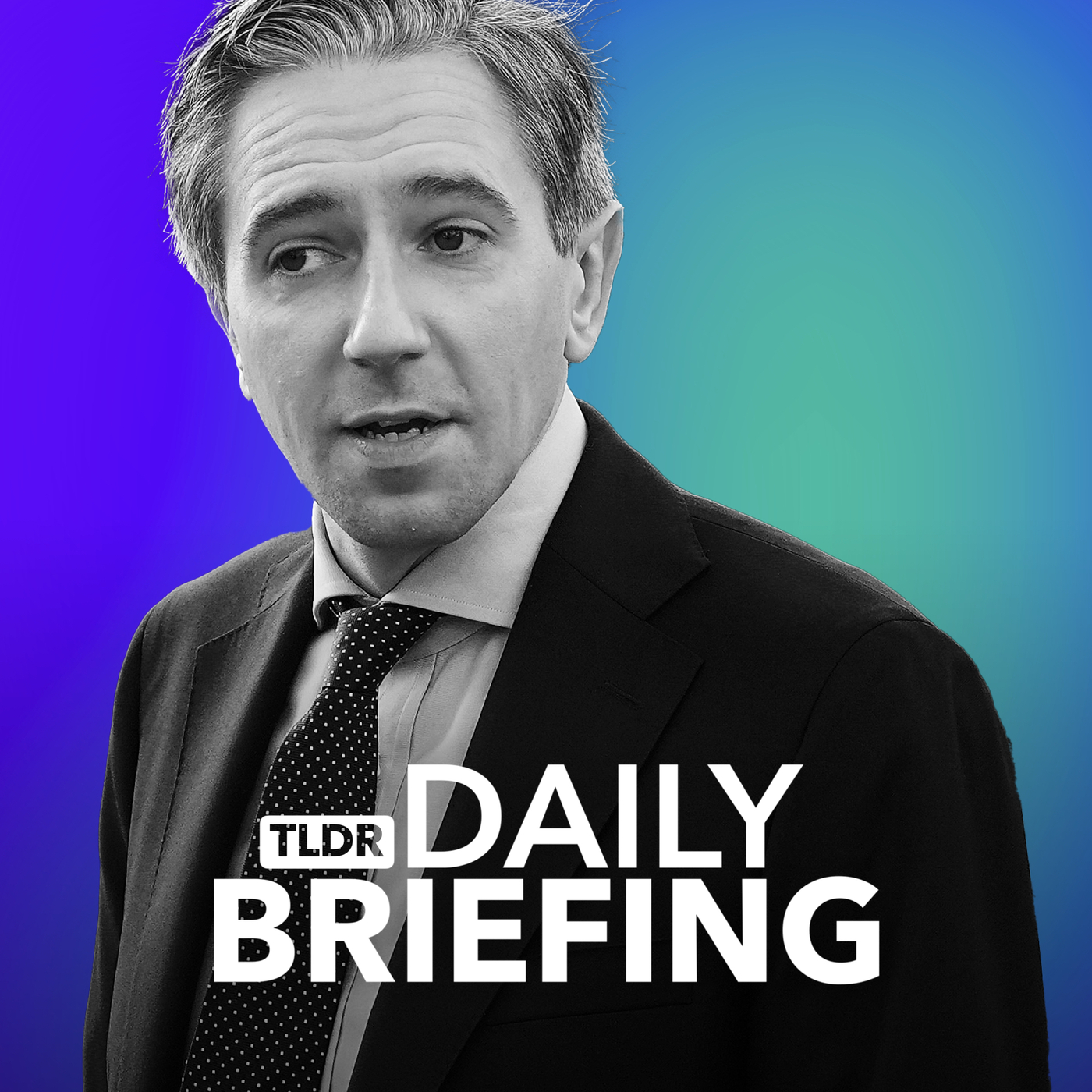
Deep Dive
Why did Israel close its embassy in Dublin?
Israel closed its embassy in Dublin due to what it described as extreme anti-Israel policies of the Irish government, including Ireland's recognition of the Palestinian state and support for legal proceedings against Israeli leaders at international courts.
What did the Irish Prime Minister say in response to Israel's actions?
Irish Prime Minister Simon Harris accused Israel of engaging in the diplomacy of distraction and expressed pride in Ireland's vocal support for Palestinians, criticizing the scale of civilian deaths in Gaza.
What accusations did the Israeli foreign minister make against the Irish Prime Minister?
The Israeli foreign minister branded Irish Prime Minister Simon Harris as anti-Semitic and rejected claims that Israel was starving children or preventing aid from reaching Gaza.
How did Ireland's President Michael D. Higgins respond to Israeli accusations of anti-Semitism?
President Higgins called it slander for Israeli politicians to accuse the Irish people of anti-Semitism for opposing Israeli actions, emphasizing Ireland's historical understanding of dispossession and occupation.
What is the current death toll in Gaza during the ongoing conflict?
Gaza health officials reported that over 45,000 people have been killed in Gaza during the past 14 months of war.
Why did Mauritius' new Prime Minister reject the UK's Chagos Islands deal?
Mauritius' Prime Minister Navin Ramgoolan said the deal did not meet the nation's expectations and proposed changes, though he did not specify the counter-proposals.
What was the UK's response to Mauritius' rejection of the Chagos Islands deal?
The UK government denied the deal was unravelling and stated it was engaging with the new Mauritian government to address their concerns.
Why did Iran pause its stricter headscarf law?
Iran paused the stricter headscarf law due to international pressure and warnings from Iran's reformist president that it could lead to more protests, similar to those following the death of Marza Amini.
Who was responsible for the assassination of a Russian general in Moscow?
Russia claims a 29-year-old Uzbek citizen, recruited by Ukraine's SBU intelligence service, confessed to planting and detonating the bomb that killed General Igor Kirillov.
What was the motive behind the assassination of the Russian general?
Ukraine's SBU claimed responsibility, accusing Russia of using chemical weapons against Ukrainian troops, which Russia denies.
Shownotes Transcript
Today, the island-Israel feud intensifies, Mauritius pushes back against the UK's Chagos Islands deal and Russia says it's detained a suspect in the assassination of a top general in Moscow. From TLDR News, this is your daily briefing for Wednesday 18th December 2024.
Ireland and Israel's diplomatic feud has deepened, with Israel deciding to close its embassy in Dublin due to what Israel's foreign minister described as the extreme anti-Israel policies of the Irish government.
Foreign Minister Gideon Saar cited Ireland's decision to recognise the Palestinian state, its support for what he called politicised proceedings against Israeli leaders at the International Criminal Court and support for South Africa's case against Israel at the International Court of Justice.
where it's accused of genocide for its actions in Gaza. The Israeli embassy in Dublin said Ireland had gone beyond legitimate criticism of Israel and had prompted steps and rhetoric which attempt to delegitimize Israel.
Irish Taoiseach or Prime Minister Simon Harris accused the Israeli government of engaging in the diplomacy of distraction by closing its Dublin embassy and said, you know what I think is reprehensible? Killing children. I think that's reprehensible. You know what I think is reprehensible? Seeing the scale of civilian deaths that we've seen in Gaza. And added that he was proud that Ireland continually spoke out on behalf of Palestinians.
The feud continued, with the Israeli foreign minister describing Simon Harris as anti-Semitic and rejecting accusations that Israel was starving children and preventing aid from getting into Gaza. While Simon Harris then said he would not be responding to personalised and false attacks from anyone in the Israeli government, Ireland's President Michael D. Higgins did respond.
At a ceremony on Tuesday where he accepted the credentials of the Palestinian ambassador, Higgins said it was deep slander for Israeli politicians to accuse the Irish people of anti-Semitism because they oppose the actions of the Israeli Prime Minister, adding that Benjamin Netanyahu had breached, quote, Higgins went on to say that because of Ireland's history, it's in the Irish psyche to understand the words dispossession, occupation,
and so on. The Irish Independent cites Irish government sources as saying that they're closely monitoring for any potential fallout from the row, and added that it was stark that Ireland was singled out for the closure of its embassy.
Meanwhile, the news coming out of the Middle East is that hopes for a ceasefire in Gaza are raised, with officials expressing cautious optimism that a deal could be struck. It comes as Gaza health officials said on Monday that more than 45,000 people had now been killed in Gaza during the past 14 months of war.
There's more on the way, but remember to subscribe and ring the bell for more Daily Briefing tomorrow. Plus, if you want to support the channel like Eric Pringle, then consider joining the TLDR Daily Membership Programme for just £1.99.
In a blow to the UK government, Mauritius' new Prime Minister has said that the agreement struck with the UK over the Chagos Islands does not satisfy his country and has proposed changes to the deal. The original agreement to settle the decades-old issue was struck back in October and saw the UK Labour government agree to recognise Mauritian sovereignty over the Indian Ocean Archipelago.
but the UK would retain a lease of at least 99 years over the island of Diego Garcia, home to a major US-UK military base. However, not long after the deal was announced, Mauritius held an election which saw a new government elected. The country's new Prime Minister, Navin Ramgoolan, ordered a review of the deal and announced in the Mauritian Parliament yesterday that the deal would not produce the benefits that the nation could expect from such an agreement.
adding that he sent counter-proposals to London. He did not say what those counter-proposals were, but said Mauritius still wanted to conclude an agreement with the UK, and that the UK's response to its counter-proposals were being assessed. The UK government denied that the deal was unravelling, and said that it made sense to engage with the new Mauritian government,
There are reportedly some concerns that the agreement, which had been supported by the Biden administration, could be blocked or disrupted by the incoming Trump administration. In other news, Iran has paused the enforcement of a stricter headscarf law, which proposed harsher punishments for women who defied hijab regulations, as well as for businesses who serve them.
It comes after international pressure and opposition from Iran's reformist president, Massoud Pazeshkian, who warned the stricter law could lead to more protests like those seen after the death of Marza Amini in 2022. Announcing the pausing of the law on Tuesday, Iranian Vice President Shahram Dabiri said that it would be reviewed again by the political leadership and National Security Council, and that it's not feasible to implement this bill now.
Many Iranian women continue to defy mandatory hijab rules, reflecting growing resistance to the policies of Iran's hardline Islamic government. Finally, we bring you an update on yesterday's Daily Briefing main story. Russia says it's detained a man who had confessed to planting and detonating a bomb that killed a senior official, Igor Kirillov, in Moscow on Tuesday, on the instructions of Ukraine's SBU intelligence service.
Kirillov, who was Russia's head of nuclear, biological and chemical protection troops, was killed outside his apartment building in Moscow, along with his assistants, when a bomb hidden in an electric scooter went off. Ukraine's SBU then took responsibility for the killing, accusing Russia of using chemical weapons against Ukrainian troops.
which Russia denies. Russia says the suspect is a 29-year-old Uzbek citizen who was recruited by Ukrainian special services to carry out the assassination. In a video published by the FSB, Russia's intelligence agency, a dark-haired man speaking directly to the camera says he was offered a $100,000 reward and permission to move to the European Union in return for killing Kirillov.
The FSB added that on Ukraine's instructions, the man travelled to Moscow where he received a homemade explosive device, which he placed on an electric scooter and then parked at the entrance to Kirillov's apartment building.
He then rented a car and put a camera on the dashboard, which live-streamed a video to handlers in the Ukrainian city of Dnipro, according to the FSB. When they saw Kirillov emerge from the house, the man was then instructed to detonate the bomb remotely. Russia has vowed to respond to the killing, which is the most brazen in a string of assassinations of top Russian officers carried out deep behind enemy lines by targeting Ukrainian officials.
Dmitry Medvedev, deputy chairman of Russia's Security Council, called on security officials to destroy the people behind it in Kiev.
Now obviously all of that is pretty complicated, but hopefully our analysis has made it a little clearer. Making videos like this requires a lot of effort and research to uncover what's really going on, before then summarising it into something that makes sense to everyone. But that's an expensive process. Running TL;DR this year has cost just under £800,000, which when your main product is free YouTube videos is quite a lot of money.
If you want to support our journalism in 2025, then one way to do so is picking up a copy of our magazine Too Long. That's because buying Too Long doesn't just get you a high-quality magazine, it also allows you to invest in independent journalism and join us in shaping the future of news. Now, this most recent issue focuses on the 29 biggest elections of the year, making sure you understand what really happened in this mega-election year and commemorating one of the biggest years in news.
We don't just discuss elections, though. We also run through China's trade issues, Biden's successes and failures, and the UK's new opposition leader and the state of the wars in Ukraine and Gaza. Plus, the fact it's a magazine also means we're not constrained by the time limits or algorithms imposed by YouTube.
Unlike fleeting news cycles and algorithmic feeds, TooLong offers thought-provoking analysis and comprehensive coverage that's truly worth holding. If you're convinced, you have three more decisions to make. First, do you want a physical or digital copy? The physical is a high-quality, 60-page perfect
bound magazine shipped right to your door. The digital is slightly cheaper, especially if shipping is a concern. Your second choice is the standard or premium edition. The standard is just a copy of the magazine, while premium also gets you access to our monthly behind-the-scenes podcast, The Bullpen, where we break down all of the production of Too Long and TLDR more generally, and you'll get your name printed in the thank you section of the magazine. Finally, do you want to subscribe? If you do, you'll get a copy of Too Long every four months.
meaning you'll never miss an issue. Plus, you'll also get 25% off every copy as long as you stay subscribed. If you can, subscribing also gives us a reliable income stream, which is super useful for us. Regardless of which option you choose, you can buy a copy right now at too-long.news or click the link in the description. Thanks for your support and thanks for backing Too Long.
